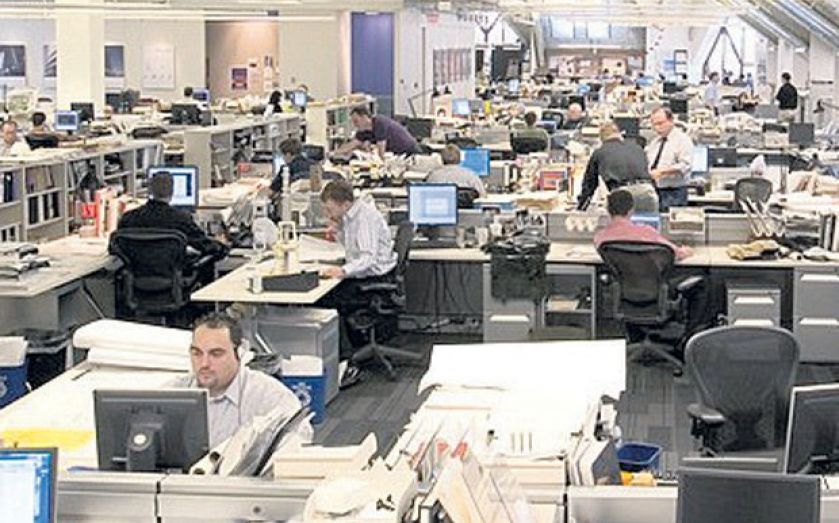The open-plan office debate: Pros and cons

Man is a social animal, but some think sharing germs is a step too far
DEMOCRATIC arenas for the open sharing of ideas, or chaotic workplace jungles brimming with a cacophony of distracting noises? Open-plan offices are divisive. But with square meters at a premium – London last year overtook Hong Kong as the most expensive location for office space in the world, at $23,500 (£14,131) per desk per year – costly private offices seem unlikely to make a comeback soon. So is this for better or worse?
SHARING AND SERENDIPITY
A common argument for tearing down the walls at work is that it increases the flow of ideas in an organisation. Like fat clogging up your arteries, stripping away the physical barriers to communication arguably leads to a healthier circulation of information, encouraging creativity and giving employees the chance to learn from each other. Twitter’s Jack Dorsey certainly thinks so. “Mainly, I’m just walking around the office, sitting down with people, figuring out what is going on,” he recently told CBS. “This is a common workspace, it’s like a workshop.”
And the idea has a heritage. While some of the first open-plan workspaces were mirrors of the US’s giant car factories, the idea really took hold in 1950s Germany as part of an architectural reaction to the top-down strictures of Nazism. An open office environment breeds an open mind, the theory goes, with employees and the firm feeling the benefits.
DISTRACTIONS
But the relentless flow of ideas can be counter-productive. A 2009 study in the Journal of Environmental Psychology found that “irrelevant speech contributes to mental workload, poor performance, stress, and fatigue” in open-plan environments. To overcome this, some office managers have even taken to pumping “pink noise” – to replace unwanted conversational diversions with a pleasant, ambient buzz.
SUPERVISION
Managers have a far easier time keeping an eye on their team in open-plan spaces, according to JP Office Workstations. It’s a fairly obvious point – while it’s no doubt annoying having to worry about being caught mid-Facebook session in the run-up to an important deadline, the fact that anyone within a 5 meter radius can see your screen surely helps keep workers on task.
COUGHS AND SNEEZES
With accountability, however, comes added stress, and a study published in the Scandinavian Journal of Work, Environment and Health found that open-plan workers took 62 per cent more sick days than those based in an enclosed space. Anxiety stemming from a chaotic workplace is one reason. But as well as being the perfect breeding ground for new ideas, open-plan spaces can spawn a nasty array of microbes, including staphylococcus. Absent walls, your coughs, sneezes and wheezes have a far easier job of spreading from victim to victim – a particularly disconcerting thought for those of us accustomed to eating at the desk.
Apps to boost productivity
MakeME (Free)
“Get things done”
Constantly putting off learning another language? Struggling to find the motivation to keep exercising regularly? MakeMe aims to harness the power of social pressure to help users achieve their goals. You are put into groups with friends, and penalised with “consequences” of your own choosing for failing to complete tasks or “random acts of kindness.” If you find yourself slipping behind schedule, groupmates can bail each other out through a “rescue card.” MakeMe turns getting things done into a game.